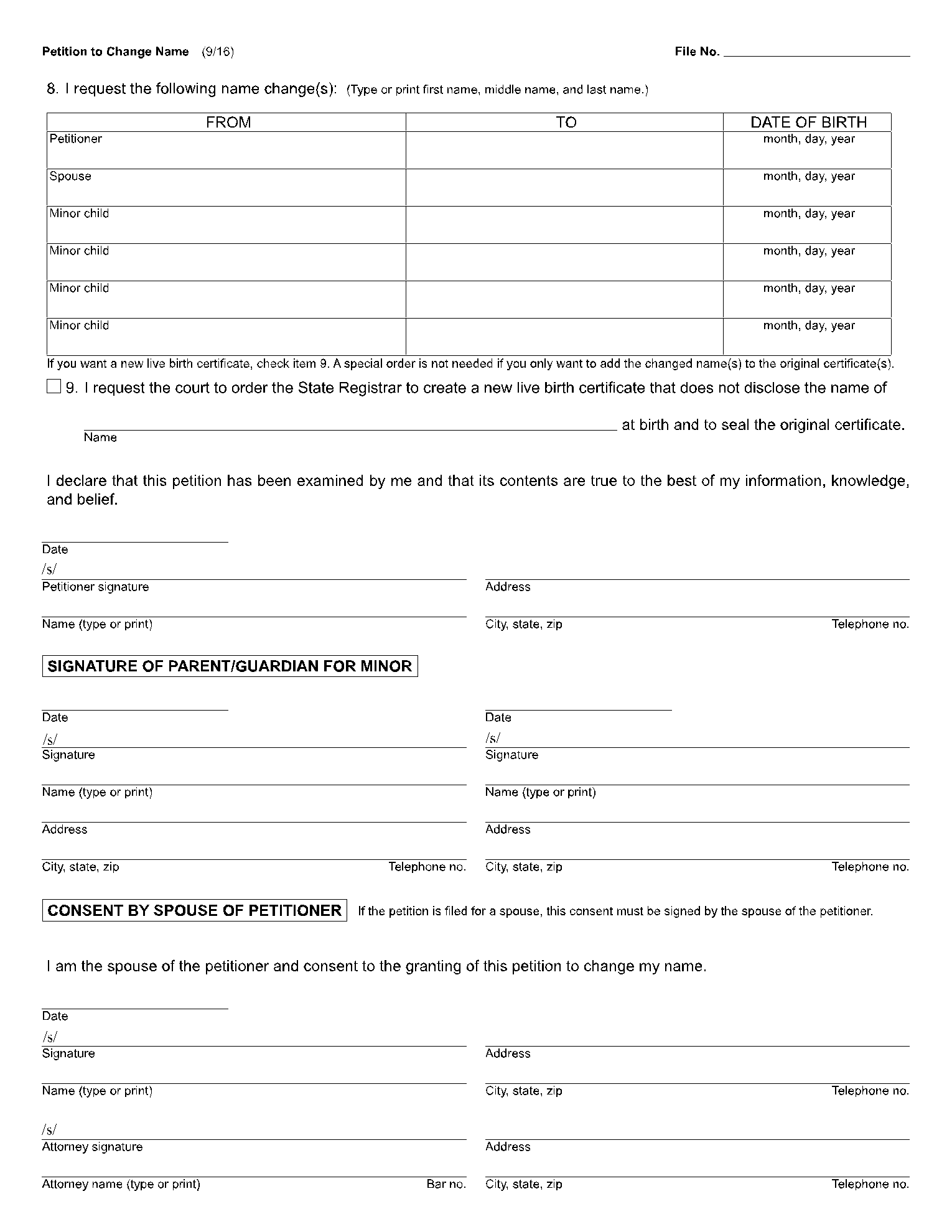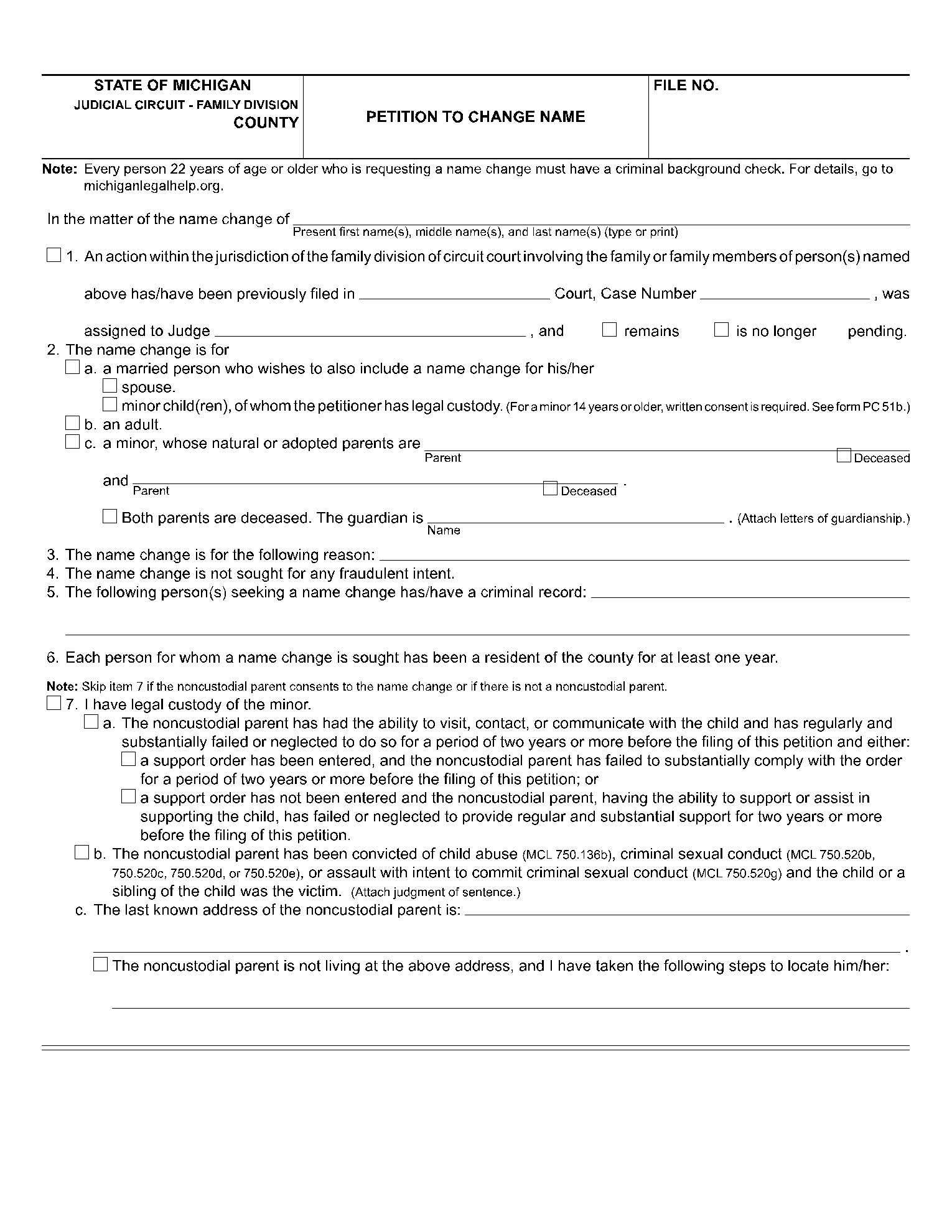All residents of Michigan who have lived in the state for at least twelve months are allowed to change their names at any point in time, so far it is consistent with the public interest. However, the decision to grant the application for a name change is entirely at the discretion of the court.
In this article, we will be having a more detailed look at what a name change in Michigan is all about including how much it costs to effect a name change Michigan. You'll also find a number of templates for your different needs at CocoSign.
The following point should be covered in your name change Michigan form:
1. An attestation declaring that the name change is not being requested to conduct fraud or a crime.
2. Sign on a notarized form consenting to the current name change or be present at the hearing date if you are a minor.
3. Previous name.
4. New name.
What Is a Michigan Name Change Form & How Does It Work?
A Michigan name change form enables all residents of the state to change their name for any legitimate reason. When the reason is a divorce or marriage, the name change process is relatively routine.
For a bride picking her groom’s last name as hers after marriage, a Michigan marriage license is used in place of a legal name change document. In the case of a divorce, the woman can use a divorce decree instead. If for any other reason outside marriage or divorce, the individual must submit a petition for a name change at a local court.
The court only grants the application if they find sufficient reason for the name change, find it to be consistent with the interest of the public and that of the child in the case of a minor child. Also, the court must see that the application was done in compliance with the requirements of the state.
How to Legally Change Your Name in Michigan?
Changing one’s name in Michigan should be a breeze-through if they go through the right procedures. Here are the steps involved in changing a name in Michigan:
- Fill name change form: The petitioner must obtain a Michigan name change form called Form PC51 and complete it. For record sake, he/she should keep a copy of the form.
- Make arrangements for collection of fingerprints: If the petitioner is above 22 years of age, their fingerprints must be collected by a local policy agency to see if they have any criminal history. Adults between 18 and 22 years are not required to submit their fingerprints or do a criminal background check. The fees for a fingerprint card and background check should be between $47 and $52.
- Submit documents to court: The petitioner must submit a valid-state issued passport or photo ID alongside their PC51, both tucked into a self-addressed envelope with prepaid postage to a court clerk.
- Pay filing fee: The petitioner then pays a filing fee or fill out an MC-20 Fee Waiver form if they are unable to pay this fee
- Publish name change: The individual must then publish this name change in a newspaper publication prescribed by the court.
- Court Hearing: Finally, the judge collects results from the criminal background check, asks the individual their reasons for filing such a petition and thereafter makes them swear an oath that they are not changing their names for any fraudulent reason. Upon approval, the judge stamps a court order as proof for name change.
When Do People Change Their Names in Michigan?
There are several reasons why one may want to change their name. Some of the most common of which are:
- Marriage
- Divorce
- Adoption
- Disassociating one from a family name
- Name is associated with an infamous criminal
Must-know Basics of Michigan Name Change
Before a legal name change Michigan application is granted, the following criteria must be met:
- The individual filing for a name change must be at least 18years old
- Must have been a Michigan resident for at least one year
- Must have been resident in the county for at least 12 months
- Must not be applying for a name change to evade taxes, debts or any other reasons
- A name must not contain any curse, racial slur or offensive word
- The individual must have no criminal record. The only exception is that they can provide legal justification for why their name change application should be granted.
Do you want to change your name and do not know how to go about it? Begin by downloading any of CocoSign free forms and start executing it according to the procedures listed above.

